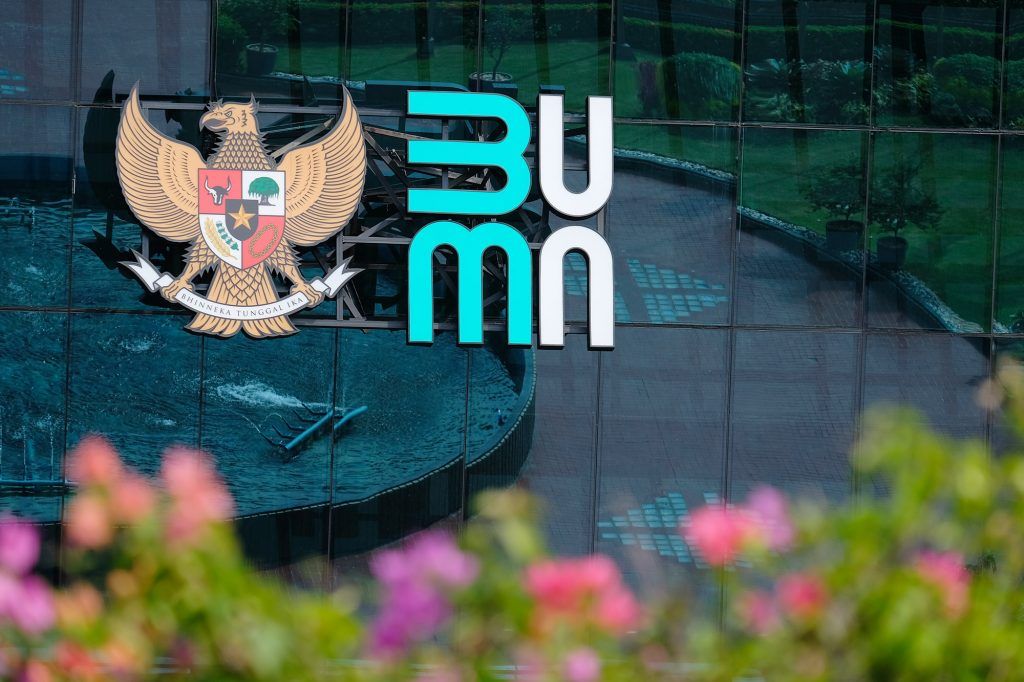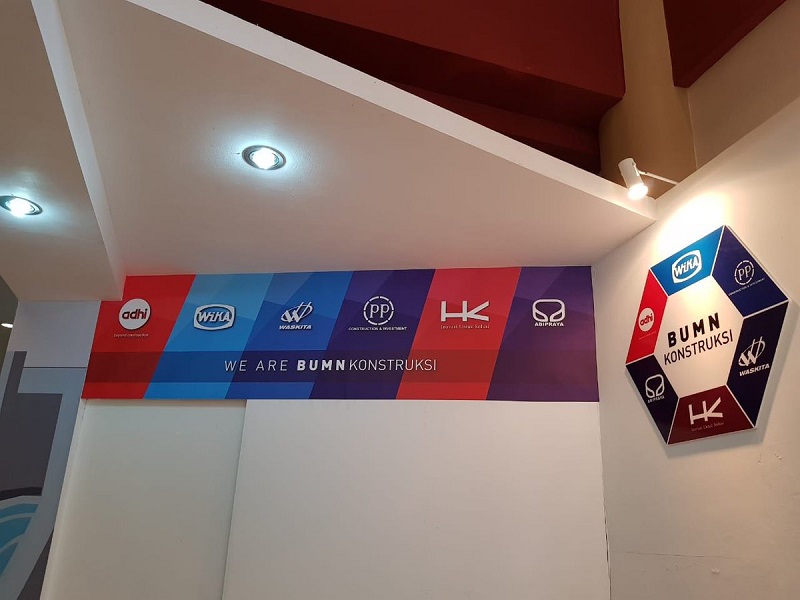
The Shortfall of the State-Owned Enterprises (Serial 1): Declining Dividends Make Indonesia Finances are Getting Withered
JAKARTA – State-Owned Enterprises (SOES) are gasping hard for breath. The COVID-19 pandemic that has hit Indonesia since last year has caused this entity that contributes to state revenue to experience extraordinary business disruptions. SOE Minister, Erick Thohir, revealed that the consolidated net profit of all state-owned companies had fallen 77% year on year (yoy) […]
Korporasi
JAKARTA – State-Owned Enterprises (SOES) are gasping hard for breath. The COVID-19 pandemic that has hit Indonesia since last year has caused this entity that contributes to state revenue to experience extraordinary business disruptions.
SOE Minister, Erick Thohir, revealed that the consolidated net profit of all state-owned companies had fallen 77% year on year (yoy) from Rp124 trillion in 2019 to Rp28 trillion in 2020.
The shrinking profit of SOEs cannot be separated from the income post which also fell to Rp1,200 trillion in 2020 from the previous Rp1,600 trillion.
- 11 Bank Biayai Proyek Tol Serang-Panimbang Rp6 Triliun
- PTPP Hingga Mei 2021 Raih Kontrak Baru Rp6,7 Triliun
- Rilis Rapid Fire, MNC Studios Milik Hary Tanoe Gandeng Pengembang Game Korea
- Anies Baswedan Tunggu Titah Jokowi untuk Tarik Rem Darurat hingga Lockdown
- IPO Akhir Juni 2021, Era Graharealty Dapat Kode Saham IPAC
The decline in the performance of SOEs clearly has implications for state revenues. The reason is that SOES dividends are one of the receipts from Separated State Assets (KND).
Therefore, the decision of a number of SOEs to “tighten their belts” by not paying dividends clearly has an effect on state revenues.
In the 2021 State Revenue and Expenditure Budget (APBN), the target for SOEs dividend receipts for the 2020 financial year is only Rp26.13 trillion or a decrease of 46.73% yoy compared to the achievement of the 2019 financial year of Rp43.8 trillion.
“With 90 percent of SOEs being hit at this time, we were able to contribute dividends of Rp40 trillion, this year we are targeting at least 25% of that (the realization of dividends for the 2019 fiscal year),” said Erick in a working meeting with Commission VI of the House of Representatives (DPR) RI, Thursday, June 6, 2021.
Based on data compiled by TrenAsia.com, a number of state-owned enterprises that decided not to pay dividends still recorded net profits, although most experienced a decline. In the General Meeting of Shareholders (GMS) which was held by a number of SOEs, the following is a provisional list of state-owned companies that do not distribute dividends for the 2020 financial year.
| Company | Net Profit 2020 (Rp Trillion) | Net Profit 2019 (Rp Trillion) | Total Government Shares (%) | Total Dividend 2019 (Rp Trillion) |
| PT Jasa Marga (Persero) Tbk (JSMR) | 0,501 | 2,21 | 70 | 0,110 |
| PT Wijaya Karya (Persero) Tbk (WIKA) | 0,185 | 2,28 | 65,05 | 0,457 |
| PT Adhi Karya (Persero) Tbk (ADHI) | 0,23 | 0,663 | 51 | 0,66 |
| PT Semen Baturaja (Persero) Tbk (SMBR) | 0,10 | 0,30 | 75,5 | 0,6 |
| PT Bank Tabungan Negara (Persero) Tbk (BBTN) | 1,6 | 0,209 | 60 | 0,20 |
Director of MNC Asset Management, Edwin Sebayang, said the decision taken by the state-owned companies were burdensome to state revenues. According to Edwin, the SOEs should be able to continue to distribute dividends even though the ratio is lowered.
“If it is still profitable, it is necessary to give dividends, but the ratio is lowered. The dividend distribution is proof of investor confidence and fills the government’s treasury,” said Edwin to TrenAsia.com, Thursday, June 10, 2021.
SOEs Karya should be the Focus

BUMN Karya yang terdiri dari Adhi Karya, Wijaya Karya, Waskita Karya, PT PP, Hutama Karya, Brantas Abipraya / Twitter @waskita_karya
Edwin saw the tendency of the lack of SOEs Karya to fill state revenue posts. SOEs Karya is a State-owned Enterprises that operate in infrastructure. The performance of this SOEs Karya, said Edwin, was very minimal in terms of state revenues even before the COVID-19 pandemic.
A number of development projects carried out by SOEs Karya over the past few years are indeed quite intensive. Behind that, the financial condition of this state-owned enterprise turned out to be very wobbly.
A number of SOEs are noted to have high debt amounts. Based on the company’s annual financial statements. Adhi Karya recorded a debt of Rp32.51 trillion with an equity value of only Rp5.57 trillion.
Thus, ADHI’s debt to equity ratio (DER) has reached 5.8 times. This means that debt obligations are five times greater than the company’s net capital.
- 11 Bank Biayai Proyek Tol Serang-Panimbang Rp6 Triliun
- PTPP Hingga Mei 2021 Raih Kontrak Baru Rp6,7 Triliun
- Rilis Rapid Fire, MNC Studios Milik Hary Tanoe Gandeng Pengembang Game Korea
- Anies Baswedan Tunggu Titah Jokowi untuk Tarik Rem Darurat hingga Lockdown
- IPO Akhir Juni 2021, Era Graharealty Dapat Kode Saham IPAC
The same thing was experienced by PT Waskita Karya (Persero) Tbk (WSKT) with a record of liabilities that far exceeded its net capital. WSKT’s liabilities in 2020 are at Rp89.01 trillion with equity of Rp16.57 trillion.
So, the DER of this state-owned company in 2020 is at the level of 5.3 times. In slight difference, a number of other SOEs Karya have high DER, including PT Pembangunan Perumahan (Persero) Tbk (PTPP) (2.81 times), Wijaya Karya (3.08 times), to Jasa Marga (3.21 times).
Edwin sees the need for financial restructuring in SOEs Karya so that the dividends received by the state are optimal. “I think, if SOEs are healthy, there is a need from the government to fill cash (state revenues),” said Edwin.
Meanwhile, State-Owned Enterprises Observer University of Indonesia (UI), Toto Pranoto, said that the state-owned enterprises in the field of work should be the driving force of revenue and economic growth in Indonesia.
Toto reflected on the effectiveness of national companies in Taiwan and South Korea that could boost the country’s economic growth. This can be seen from the financial management capabilities of companies in the two countries in development projects.
“If we look at Taiwan or South Korea, their state-owned companies are very healthy, even though there are a lot of development projects being carried out,” said Toto while talking to TrenAsia.com, Thursday, June 10, 2021.
International Monetary Fund (IMF) in its report also mentioned the high economic growth in both countries is the result of effective development by state-owned companies. The report released in 2015 stated that the growth of the Gross Domestic Product (GDP) of South Korea and Taiwan could be optimal thanks to development projects whose funds did not come from debt.
Differing opinions, Toto said that the decision of a number of SOEs Karya which was compact not to distribute dividends was the right step. He said the retained earnings needed to be allocated carefully to improve the company’s financial condition.
“Despite many negative responses, the retained earnings received by this SOEs must be used to improve (financial) posture, do not rush to capex (capital expenditure) especially in times of high uncertainty like now,” said Toto.
The Association of Stated-Owned Banks is the Focus
SOEs Minister, Erick Thohir, revealed that the target for dividends received by the state this year is Rp26.13 trillion. Looking further into the target set by Erick Thohir, apparently the dividends were donated from four giant SOEs.
| SOEs | Net Profit (Rp Trillion) | Total Dividend (Rp Trillion) | Government Shares (%) | Government Dividend (Rp Trillion) |
| PT Bank Rakyat Indonesia (Persero) Tbk (BBRI) | 18,65 | 12,12 | 56,75 | 6,88 |
| PT Bank Mandiri (Persero) Tbk (BMRI) | 17,11 | 10,27 | 60 | 6,16 |
| PT Bank Negara Indonesia (Persero) Tbk (BBNI) | 3,28 | 0,820 | 60 | 0,492 |
| PT Telkom Indonesia (Persero) Tbk (TLKM) | 20,8 | 16,64 | 52,09 | 8,66 |
| Total | 59,84 | 39,85 | 22.19 |
Members of the Association of State-Owned Banks (Himbara) together with Telkom are noted to be the spearheads of state revenue from state dividends. In fact, Indonesia has 113 state-owned companies until 2021.
This raises questions about the performance of many SOEs that are not contributing to state revenues. Deputy Minister of State-Owned Enterprises, Kartika Wirjoatmodjo, said that he is still mapping the number of SOEs with unhealthy finances.
- 11 Bank Biayai Proyek Tol Serang-Panimbang Rp6 Triliun
- PTPP Hingga Mei 2021 Raih Kontrak Baru Rp6,7 Triliun
- Rilis Rapid Fire, MNC Studios Milik Hary Tanoe Gandeng Pengembang Game Korea
- Anies Baswedan Tunggu Titah Jokowi untuk Tarik Rem Darurat hingga Lockdown
- IPO Akhir Juni 2021, Era Graharealty Dapat Kode Saham IPAC
However, Kartika said that this mapping will only be completed by 2024. The Ministry of State-Owned Enterprises is currently preparing special options such as restructuring to the dissolution of ailing state-owned companies.
“Until now, we are still doing the mapping and hopefully it can be completed in 2024. But look at the SOEs there are clusters that are very healthy too, especially banking which is the main locomotive of state revenue,” Kartika said in a virtual discussion, Wednesday, June 9, 2021.
This condition is actually not a new phenomenon. The Ministry of Finance revealed that 90% of SOEs dividends for the 2019 financial year distributed last year were donated by only five companies.
The five companies come from three Himbara members, plus Telkom and PT Pertamina (Persero). The total dividends for the 2019 financial year reached Rp44.6 trillion, a decrease compared to the 2018 financial year of Rp51 trillion.
Seeing this development, the Ministry of SOEs concluded that it is difficult for state-owned companies to contribute much to state revenues. In fact, the injection funds to SOEs through State Capital Participation (PMN) for the 2021-2023 period are projected to be greater than state revenues from dividends.
In 2021, the government will allocate a PMN budget of Rp67 trillion. The PMN budget is 139% larger than the BUMN dividend target in 2021 of Rp26.13 trillion.
Meanwhile, the dividend target in 2022 will increase by 9.07% to IDR 28.5 trillion. Meanwhile, the PMN target for next year will drop slightly to Rp62 trillion. So, how can the state wallet be filled again, Mr. Erick? (SKO)
This article is a series of special reports that will be continued in the next issue entitled “The Shortfall of the State-Owned Enterprises”
Writer: Muhamad Arfan Septiawan
Editor: Sukirno

